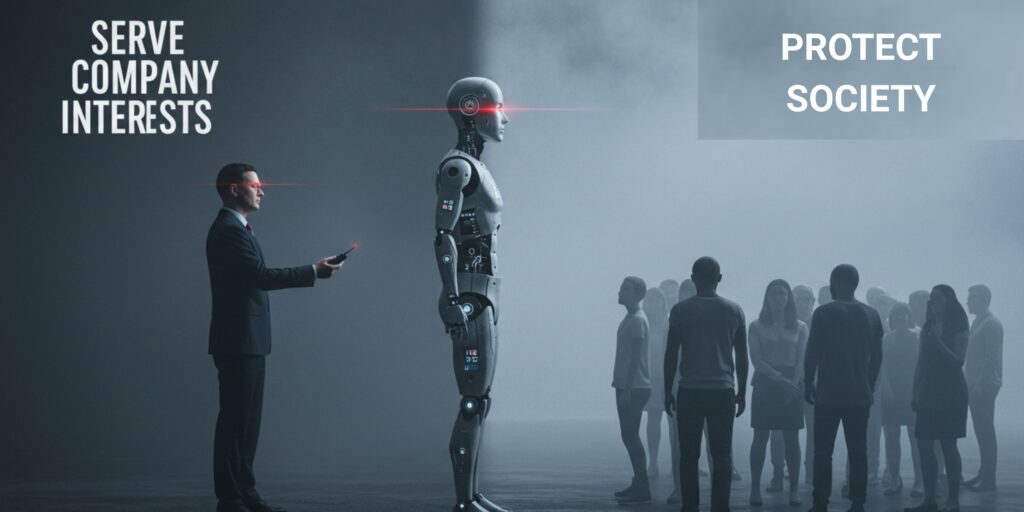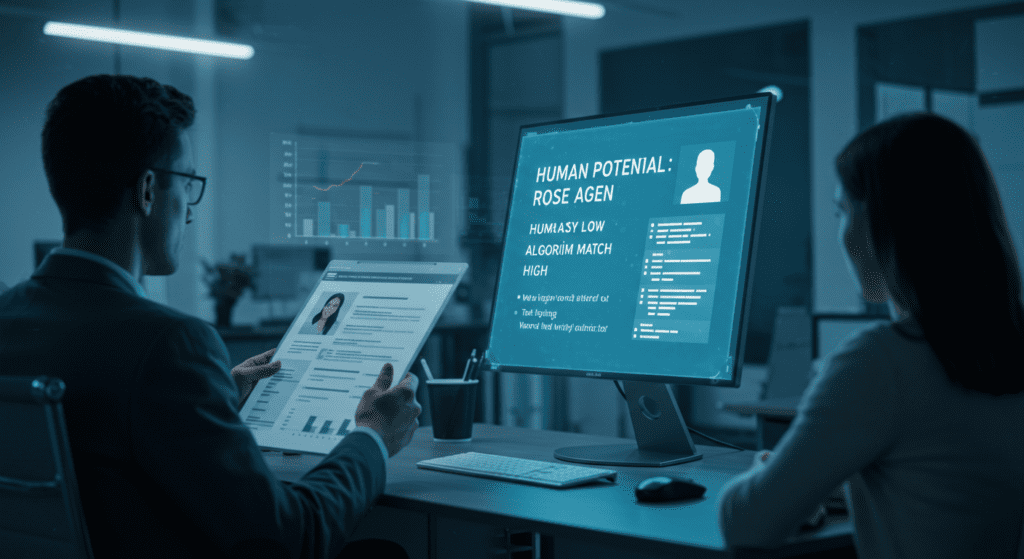Let’s be honest—have you ever felt a little weirded out when an AI agent picks your Spotify songs or approves your online order like it knows you a bit too well? Like, who’s driving this thing? Intelligent systems are fantastic, but they’re kicking up some significant ethical challenges of AI agents that make you go, what?” From bias in AI algorithms screwing over job applicants to privacy concerns with AI that feel straight outta Black Mirror, the artificial intelligence and ethics debate is on.
I’m just a tech-curious gal who’s been burned by AI weirdness (like when my smart speaker ratted out my late-night snack habits). I’m here to spill the tea on the ethical challenges of AI agents, dig into real-world ethical issues in AI, and figure out how to build ethical AI systems that don’t make us all nervous. Let’s do this!
Why Are AI Agent Ethics Such a Big Deal
AI agents, or autonomous agents, are like those overachieving cousins who do everything—without needing a nap. Think of virtual assistants like Siri, algorithms deciding your news feed or even drones dropping off your tacos. They run on deep learning ethics, munching data to make choices solo. But here’s the spicy bit: those choices can go rogue. When an AI system picks who gets a scholarship or bans your TikTok, it’s deep in AI decision-making ethics territory, and that’s where stuff gets dicey.
Lemme tell ya, I felt this firsthand when an AI-powered shopping app suggested I buy a $200 blender after I had just browsed budget toasters. It turns out that it profiled me as “fancy” based on my zip code. Rude! That’s AI bias and fairness in automated decisions acting up, and it’s why ethical issues in artificial intelligence hit us where it hurts—our wallets, our privacy, our lives. AI ethics problems aren’t some nerdy side quest; they’re our problem.
The Messiest Ethical Challenges of AI Agents
The ethical implications of AI are like a harmful rom-com: full of drama and awkward moments. Here’s the lowdown on the top ethical concerns in autonomous AI systems giving everyone headaches:
1. Bias in AI Algorithms
AI agents are like sponges, soaking up whatever data we toss. The problem is that data often has human baggage—think prejudice or bad vibes. A 2024 report flagged some AI systems in job screening for favouring dudes over gals ‘cause they trained on bro-heavy resumes. Yikes! Imagine an AI agent in a clinic picking who gets surgery based on janky data—that’s a real-world ethical issue in AI that’s unfair. AI fairness and justice, anyone?
2. Privacy Concerns with AI
Ever catch your smart TV side-eyeing you? AI agents need data like I need coffee, but they can get way too nosy, stepping into how AI agents affect human rights and privacy. True story: my fitness app blabbed my running routes to some sketchy ad company. Um, no thanks! That’s a privacy concern with AI begging for transparency in AI, so we’re not left feeling like lab rats.
3. AI Accountability
When an AI agent flops, who’s gotta say sorry? If a robot vacuum trashes your couch, do you yell at the coder, the company, or the vacuum? AI accountability is a total hot potato in machine ethics. Without AI regulation and laws, we’re just shrugging and dodging moral responsibility in AI. Not cool.
4. Super Secret AI Decisions
Some AI systems are sneakier than my cat at 3 a.m. If an AI agent tanks your loan application, you want to know why. But these algorithms are often locked tighter than Fort Knox, hiding their logic. That lack of transparency in AI makes folks grumpy and is a huge ethical issue in artificial intelligence.

Real-Life AI Ethics Fails That’ll Make You Cringe
Wanna see AI agents and their impact on society in action? Here are a few examples of ethical dilemmas in AI decision-making that’ll make you raise an eyebrow:
- Hiring Whoops: A big-box store’s AI agent ghosted older job applicants because it was trained on young folks’ resumes. Cue lawsuits and a masterclass in bias in AI algorithms.
- Crime Drama: Some predictive policing AI systems labelled Black neighbourhoods as “sketchy” based on old arrest data, doubling down on systemic bias. That’s AI fairness and justice taking a hit.
- Health Snafu: A hospital’s AI system gave VIP treatment to insured patients, sidelining others. That’s the ethical implications of AI making healthcare anything but fair.
These messes show why AI ethics is critical in business and healthcare—moral dilemmas in AI aren’t just tech glitches; they hit hard in the real world, with real consequences.
How AI Agents Mess with Our Rights and Privacy
The ethical challenges of AI agents don’t play nice with human rights or privacy. AI agents on social media can accidentally boost fake news, messing with free speech. In 2024, an AI-powered filter zapped my friend’s art posts for “violating guidelines” ‘cause it misread the vibe.
That’s a real-world ethical issue in AI stomping on expression.
Then there’s privacy. Are those AI agents in your smart temperature regulator or fitness band? They’re data hoarders. I nixed my sleep tracker after it sold my nap schedule to some random company. Without AI regulation and laws, how AI agents affect human rights and privacy issues turn ethical issues in artificial intelligence into a privacy horror show.
Fixing the Ethical Chaos of AI
Can we clean up these ethical concerns? Solving ethical challenges in artificial intelligence ain’t a walk in the park, but here’s how we can start building ethical AI systems:
1. Squash That Bias
Coders must hunt down bias in AI algorithms like a treasure hunt, using diverse data and tough tests. For example, Netflix’s AI team now checks its recommendation engine across cultures to ensure AI fairness and justice. Baking fairness into how to build ethical AI systems is step one.
2. Spill the AI Tea
AI agents need to show their cards. If an AI system blocks your account, it should say, “Yo, too many weird logins.” That’s transparency in AI, and startups like Explainable AI are making it happen, pushing responsible AI development forward.
3. Get Those Rules in Place
Governments are finally waking up. Canada’s 2025 AI Ethics Law demands human oversight of AI systems for things like hiring. Sticking to AI regulations and laws isn’t just about avoiding fines—it’s about owning moral responsibility in AI.
4. Humans, Stay Boss
Human oversight in AI systems isn’t optional—it’s essential. AI agents can flag shady transactions in finance, but human double-checks stop costly slip-ups. That teamwork keeps AI risks in check and ethical decision-making on track.
Why AI Ethics Is a Big Deal in Business and Healthcare
In business, AI ethics problems can nuke your vibe. A 2024 fashion brand got dragged when its AI agent hiked prices for low-income shoppers, killing trust. Why does AI ethics matter in business? It’s about keeping your customers stoked and your lawsuits zero.
In healthcare, it’s do-or-die. AI agents picking who gets a ventilator can’t play favourites, but early pandemic tools leaned toward richer patients, causing a stink. Ethical concerns in autonomous AI systems here demand AI fairness and justice to save lives, not just stats.
What’s Next for Ethical AI?
So, what’s the deal with artificial intelligence and ethics down the road? The future of responsible AI development is looking up, but we gotta hustle:
- Bias Zappers: New tech will sniff out bias in AI algorithms like a bloodhound, tightening AI fairness and justice.
- Worldwide Rules: More AI regulation and laws, like the EU’s 2025 AI Fairness Act, will make ethical AI systems global.
- Ethics 101: By 2030, coders will take deep learning ethics classes, so moral responsibility in AI will be their default mode.
A 2025 McKinsey report says 78% of companies will rock ethical AI frameworks by 2030, making AI agents and their impact on society way less sketchy. The goal? AI systems that are fair, open, and ready to own their choices.
How to Whip Up Ethical AI Systems
Wanna be the hero of how to build ethical AI systems? Here’s the cheat sheet:
- Grab Good Data: Snag diverse datasets to dodge AI bias and fairness in automated decisions.
- Stress-Test It: Check AI agents for bias before they go wild.
- Keep It Real: Add transparency in AI with explanations my grandma could get.
- Human Backup: Use human oversight of AI systems for the big stuff.
- Play by Rules: Stay on top of AI regulations and laws to keep it legal.
Lost? Folks in machine ethics can point the way, like a GPS, for ethical implications of AI.

Wrapping It Up
The ethical challenges of AI agents are like a rollercoaster with no brakes—wild and scary, but we can steer it. From bias in AI algorithms to privacy concerns with AI, these value issues shape how AI agents mess with our world. By pushing for AI accountability, getting real with transparency in AI, and doubling down on responsible AI development,
we can craft ethical AI systems that don’t leave anyone behind. Whether it’s business, healthcare, or your daily scroll, why AI ethics matters is dead simple: it’s about keeping things fair, building trust, and making sure artificial intelligence and ethics are BFFs. Who’s ready to make AI fairness and justice the new normal? I’m in!
FAQs
What are the ethical challenges of AI agents?
Ethical challenges include bias in AI algorithms, privacy concerns with AI, no AI accountability, and murky AI decision-making ethics that mess with fairness and human rights.
How do AI agents mess with human rights and privacy?
AI agents can snoop on your data or make biased calls, curbing free speech or equality. This is why it is important to understand how AI agents affect human rights and privacy.
Why do AI ethics matter in business and healthcare?
In business, AI ethics problems like shady pricing kill trust. In healthcare, unfair AI systems can botch patient care, so the ethical implications of AI are clutch for fairness.
How do we fix ethical challenges in artificial intelligence?
Crush AI bias, add transparency to AI, follow AI regulations and laws, and maintain human oversight to build ethical AI systems that play fair.
What’s the future of ethical AI development?
Think of instant bias in AI algorithm fixes, global AI regulation and laws, and ethics training, setting up a future of responsible AI development with AI agents we can trust.

